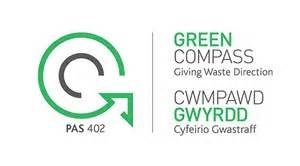Case Study
Advancing Sustainable Waste Management: An Accredited Voluntary Certification Scheme for Large Commercial and Industrial On-Site Systems
Summary
The Brazilian certification body (CB) PCN has developed a pioneering voluntary certification scheme to promote conformity assessment of solid waste management programs. The scheme was developed based on the technical requirements established by the Brazilian National Solid Waste Policy (PNRS) and applicable local standards developed by the Brazilian Association of Technical Standards (ABNT), which is the standardization body that locally represents the International Electrotechnical Commission (IEC) and International Organization for Standardization (ISO).
The initiative was the first of its kind in the Latin American region. The certification scheme was accredited by the General Coordination for Accreditation (Cgcre), which is the local accreditation body operating under the National Institute of Metrology, Standardization and Industrial Quality (Inmetro), and an IAF Member. The objectives were to support sustainable development and demonstrate how accredited conformity assessment can help improve corporate environmental practices.
Further to implementation of the program, it was noted that applying companies view prior assessment of the certifying body’s competence by an impartial third party as significantly strengthening the importance and value of a certification program that culminates in a mark of conformity.
Background
PCN Latin America is a certification body accredited by Cgcre-Inmetro and designated by the National Telecommunications Agency (Anatel). It operates as a subsidiary of PCN Global, a South Korean global market access holding, with units strategically located across key economic centres in Latin America.
The development of the Conformity Assessment for Solid Waste Management Programs stems from PCN Latam’s commitment to fostering transparency, continuous improvement, and reliability in solid waste management initiatives. This effort provides a platform for companies in Brazil to distinguish themselves through clear communication of their environmental dedication.
The assessment, acknowledged by Inmetro, showcases adherence to criteria such as Environmental Education, Waste Collection, Transportation and Disposal, Legal Compliance, Environmental Aspects, Infrastructure, and Document Control.
Carried out by an auditing team, the assessment involves technical visits, inspections, interviews, document analysis, evidence collection, and the issuance of an opinion. The certification process culminates in the issuance of a conformity certificate, valid for 12 months.
Beyond the Conformity Certificate, companies meeting all program requirements are authorized to display the Responsible Company seal, signifying excellence in solid waste management.
Strategy
The development of a voluntary certification to assess the conformity of Solid Waste Management Programs is within the objectives of PCN, which aims to actively participate in the development of a more sustainable world. One of the main concerns within the environmental, social and governance (ESG) agenda of companies, as well as sustainable development, is the treatment of solid waste. The strategy was to align the most modern legislation and standards on the subject with a voluntary certification scheme, where companies could display a mark of compliance and environmental responsibility.
Due to numerous cases of greenwashing, developing a credible certification scheme assessed and accredited by Cgcre-Inmetro was a strategy pursued by PCN. Accredited certification schemes provide greater transparency and product differentiation, giving confidence through a mark of conformity. Furthermore, the conformity mark can be expanded to other economies in Latin America, according to the mutual recognition agreements that Cgcre has signed with other accreditation bodies. The certification scheme interprets Brazilian legislation at both the municipal and federal levels concerning solid waste, and also refers to ABNT standards on the matter. It translates intricate technical concepts into quality requirements, to evaluate the best practices in solid waste management for large commercial and industrial generators.
Results and Impact
Accreditation Process:
Accreditation with Cgcre-Inmetro is a credible and robust process. During the assessment, Cgcre-Inmetro assesses the specific accreditation standards and suitability of the certification scheme, as well as the competence, in this case of PCN, to perform the certification process. Following the accreditation process, Cgcre-Inmetro accredits the certification body in the specific scope and authorizes the use of the conformity mark associated with it, bringing reliability to the scheme.
Process Evaluation:
When analyzing organizational processes during an audit, it is possible to identify inefficiencies, bottlenecks, and areas that need optimization. This contributes to improving operational efficiency.
Constructive Feedback:
The certification scheme provides constructive and impartial feedback on the organization’s performance. This feedback is valuable for understanding strengths and areas that need attention.
Compliance with Standards and Regulations:
It not only reduces the risk of non-compliance but also promotes good governance practices.
Organizational Learning:
The certification scheme provides an opportunity for continuous learning. By analyzing results and implementing corrective actions, the organization learns from past experiences, avoiding the repetition of mistakes.
Establishment of Goals and Performance Indicators:
Based on audit results, the organization can set clear goals and performance indicators to monitor and measure continuous improvement over time.
Incentive for Innovation:
Identifying improvement opportunities can stimulate the search for creative solutions and new approaches.
Employee Participation:
Involving employees in the audit process can provide valuable insights into daily operations and suggestions for improvements. This not only promotes transparency but also creates a sense of collective responsibility in the pursuit of continuous improvement.
Impact
Positive impacts have been noted from the certification of solid waste management programs in companies from different sectors. Programs of automotive factories, logistics service providers, financial institutions, and football clubs, among others, have been certified. In all cases, there was extensive promotion by the certified companies, with significant emphasis on the conformity mark, demonstrating the relevance of accreditation for voluntary certification programs addressing sustainable development goals. Therefore, we can observe that the accreditation of voluntary certification in solid waste management programs brought credibility and reliability to the scheme, providing a competitive advantage for companies that underwent the certification process, increasing the confidence of involved stakeholders, and enabling access to different markets.
Contact
Kim Rieffel: kim.rieffel@pcnlatam.com
André da Rocha Ferreira: andre.ferreira@pcnlatam.com
Caio Raposo: caio.raposo@pcnlatam.com









